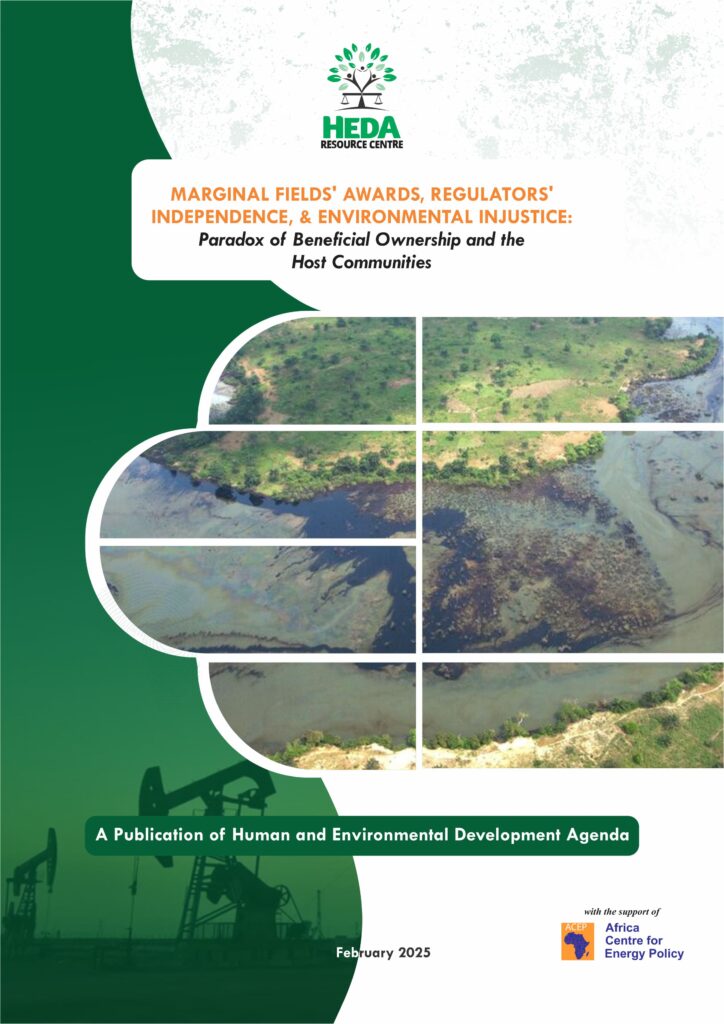The Human and Environmental Development Agenda (HEDA Resource Centre) has called upon residents of climate-frontline communities in Nigeria’s capital city, Abuja, to adopt sustainable environmental practices to mitigate the impacts of climate change.
This call was made during a visit to two communities, Piwoyi and Ushafa, located in the Abuja Municipal Area Council (AMAC) and Bwari Area Council, respectively. The sensitization campaign is part of the organization’s “African Activists for Climate Justice” project, conducted in collaboration with Oxfam.
Sulaimon Arigbabu, the Executive Secretary of HEDA Resource Centre, emphasized their commitment to amplifying the voices of climate-affected communities across Nigeria.
“Today, we visited Piwoyi Community under AMAC LG, Abuja, and an agrarian community along the River Upah. It is concerning that despite the community’s proximity to the Federal Capital Territory (FTC) and its significant population, there is no government presence,” he stated.
Arigbabu regretted that the community faces substantial challenges, primarily massive flooding and erosion resulting from intense rainfall, causing the River Upah to overflow its banks and wash away farms and infrastructure.
“A bridge constructed for the community by a private company located within has been washed away and rendered useless, making it impossible for some community members to access their farmlands or transport their produce to the market,” noted Mr. Arigbabu.
During interactions with the residents of Piwoyi community, he highlighted their grievances, including the absence of government support and relief promises following flood disasters in recent years.
“There has been no infrastructure support to alleviate their sufferings,” he added.
Jenima Ezekiel, a resident of Piwoyi and a woman farmer, shared her plight, emphasizing that farming is her sole occupation. However, the recurrent floods have consistently destroyed their crops.
“This year, I planted maize and beans, but the overflowing water washed away the crops. We could only salvage a few,” she lamented.
Elizabeth David, another woman farmer in Piwoyi, who farms across the River Upah, explained the challenges they face, including the destruction of the bridge used to access their farms.
“The overflowing water destroyed the bridge we often use to cross to the other side of our farms. We are appealing to the government to come to our aid,” she urged.
In the Ushafa community in Bwari Area Council, Arigbabu noted that the community is not prone to river-related flooding but is susceptible to flash floods during intense rainfall due to “poor physical planning.”
“This community is situated on high ground on top of rocky terrain and is thus not affected by rising waters or the type of flooding that others experience,” the official said.
He explained that a major concern in the Ushafa community is the lack of reliable water supply despite hosting the Asuma Dam, a significant water source in Abuja.
He mentioned that, as a result, households unable to install and maintain a borehole require women and children to travel long distances to fetch water from water bodies within the mountains.
While appreciating the HEDA Resource officials for bringing climate awareness to their community, the Ushafa village head, Muhammadu Baba-Kwanga, and his council asked the organisation to assist them in urging the government to address their inadequate water supply situation.
“We are also urging the HEDA Resource Centre, other NGOs, and the government to come to our aid with a robust tree planting programme,” Mr Baba-Kwanga said.
He stated that they are convinced that planting and nurturing more trees in their community is the only way they can contribute to the solution to climate change.



